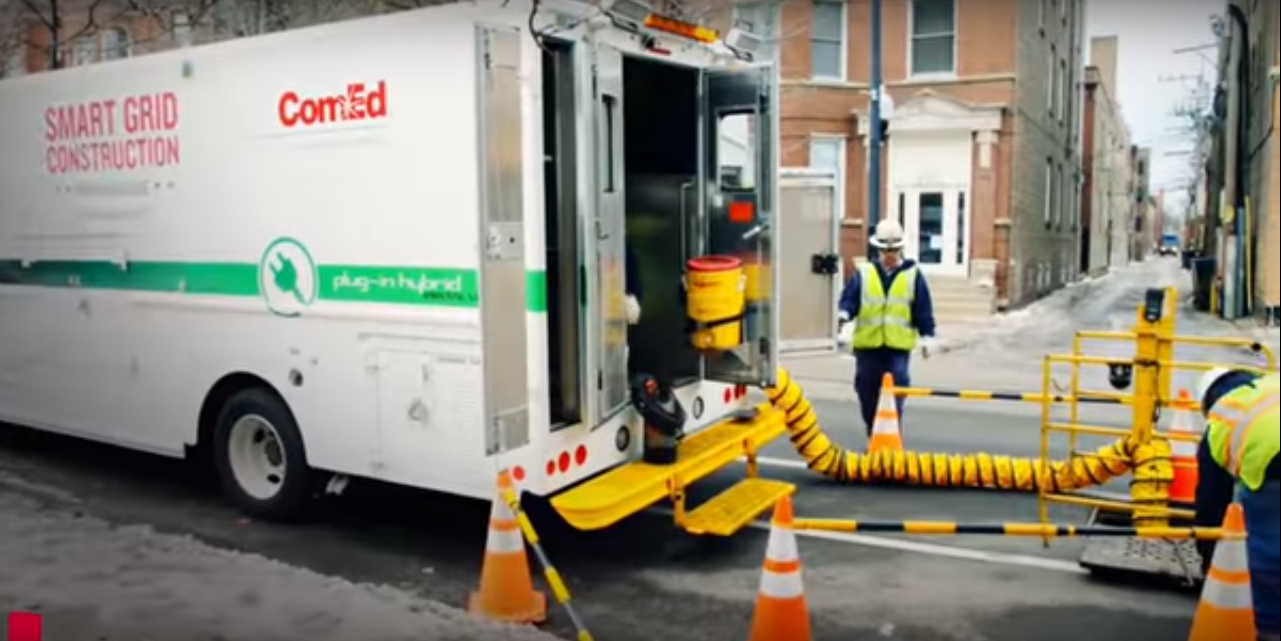ELGIN — A state appellate panel said ComEd can’t block local utilities from participating in the renewable energy credit market, affirming an Illinois Commerce Commission ruling.
On April 3, 2018, the ICC approved the Illinois Power Agency’s long-term renewable resources procurement plan under the 2016 Future Energy Jobs Act. Under that plan, the IPA sought to implement three programs providing money to small, renewable energy generation facilities: the Adjustable Block, Community Renewable Generation and Illinois Solar for All programs. The IPA specifies the amount of renewable energy credits Commonwealth Edison, Ameren Illinois and MidAmerican Energy must purchase each year; they can charge retail customers to recover some of those expenses.
ComEd appealed the ICC’s approval, and on May 2 a three-justice panel of the Illinois Second District Appellate Court in Elgin affirmed the ICC’s decision. Justice Michael Burke wrote the opinion; Justices Mary Schostok and Donald Hudson concurred.
Under the plan, local utilities — such as those operated by municipalities and rural electric cooperatives — aren’t required to buy credits like ComEd, Ameren and MidAmerican. However, generation facilities in the local utilities service areas may sell credits.
According to ComEd, the plan effectively requires its retail customers to subsidize small generation facilities outside its service territory. The IPA and Illinois Attorney General filed opposition briefs, as did the Environmental Law & Policy Center; Natural Resources Defense Council; Citizens Utility Board; Carbon Solutions Group; Solar Business Coalition; Solar Development Associates; Elevate Energy; GRID Alternatives; and the Joint Solar Parties, which included the Solar Energy Industries Association, the Coalition for Community Solar Access and the Illinois Solar Energy Association.
“Noting that the legislature limited the type of projects that may participate in the Adjustable Block Program to new photovoltaic projects, the Commission held that the Legislature did not intend to limit what service territories could participate, only what type of projects could participate in the programs," Burke wrote.
Further, the panel said, the ICC cited established precedent of the arrangement ComEd opposes.
“Illinois law has never required that generation facilities that produce credits actually be in the utilities’ service territories to meet the utilities’ compliance obligations under the renewable portfolio standard,” Burke wrote. “Moreover, qualifying facilities in adjacent states are eligible to contribute to renewable portfolio standard compliance by selling credits to contracting utilities in Illinois.”
The panel said ComEd was challenging a “narrow ruling” and disagreed with its position about the specificity of statutory language using terms like “utility,” “electric utility” and “contracting utility,” noting the IPA Act contains “direct and unambiguous definitions” that provide context for the ICC’s decision.
Burke wrote “the plan’s requirements that the Local Utilities adopt net metering policies equivalent to those of the Electric Utilities will ensure that customers of the Local Utilities receive bill crediting commensurate with state-regulated electric utility customers. The Commission adopted the plan as written to include in the programs the small generation facilities in the service territories of municipal electric utilities and rural electric cooperatives.”
The panel also noted the Legislature’s decision to distinguish between in-state and out-of-state generation facilities shows it contemplated geographical restrictions and made them explicit, counter to ComEd’s position those distinctions were to be inferred based on usage of “electric utility” and “utility.”
According to the Environmental Law & Policy Center, the Natural Resources Defens Council and the Solar Business Coalition, Burke wrote, “adopting ComEd’s statutory interpretation would effectively exclude approximately 570,000 citizen and business customers in areas served by municipal utilities and rural electric cooperatives,” which conflicts with the legislative goal of creating programs available to “all citizens of the state.”
